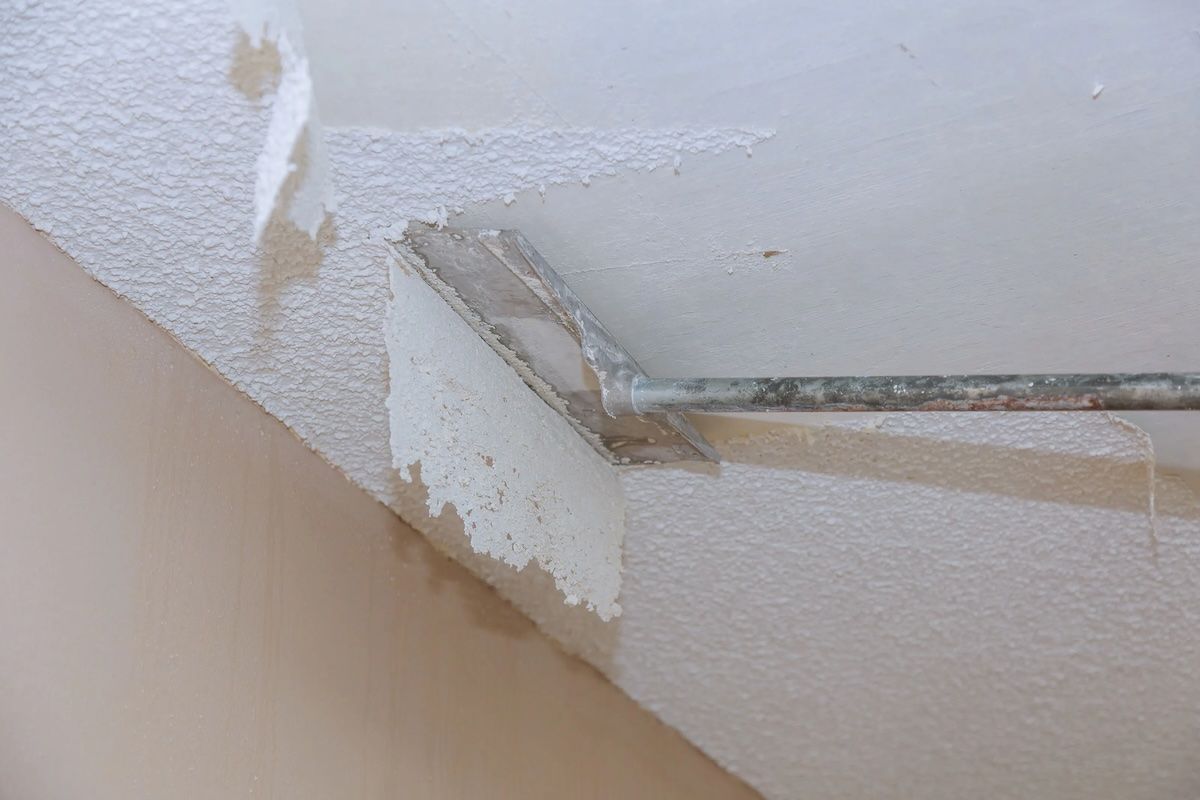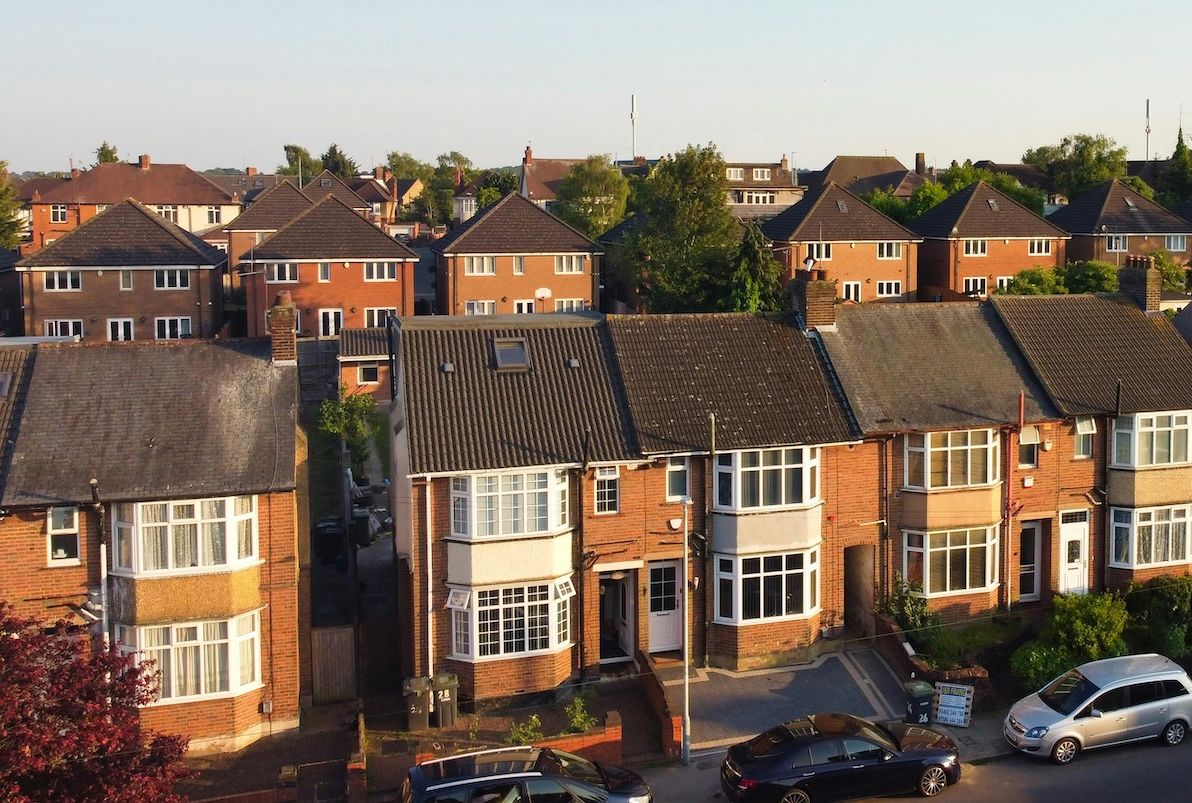- Do Power Lines Decrease Property Value?
- How Much Do Power Lines Decrease Property Value?
- Pros of Living Near Power Lines
- Cons of Living Near Power Lines
- What is a Safe Distance to Live from High Voltage Power Lines?
- Should You Buy a House Near Power Lines?
- Deciding on a Home Near Power Lines: Seek Expert Insights
Should I Buy a House Near Power Lines?
When searching for that perfect house to call home, one factor that gives some house hunters pause is the proximity of power lines to the property. They can be viewed as an eye sore, health risk, or even a safety risk. So, if you have the perfect house within your budget, but it’s next to power lines, should you buy it?
If you live in a city, chances are you see power lines and telephone poles everywhere you look. We are desensitized to them. Some cities and regions, like California, are starting to put power lines underground, but historically, they have been above ground as a cost-saving measure.
Power lines crisscross cities, suburbs, and rural areas, bringing electricity to homes and businesses. Their proximity to homes raises questions for homebuyers about the potential drawbacks.
But are these apprehensions warranted when weighing the property’s pros and cons? Do the real risks justify the stigma surrounding power line proximity? As with most aspects of home buying, the truth lies in balancing perceptions and facts, which we’ll explain in this article.
Do Power Lines Decrease Property Value?
There are different kinds of power lines, most commonly high-voltage transmission lines and low-voltage lines for local distribution.
Low-voltage power lines, supported by telephone poles, typically don’t impact property values because they are everywhere. These pieces of infrastructure are essential to keeping our cities connected and lit. However, high-voltage power lines are different.
The presence of high-voltage power lines near a property often reduces its value, though the impact varies based on location and home specifics. When buying a house near power lines in an urban area, the effect on property value near power lines may not be as severe as for a rural home.
Proximity is key when buying a house near power lines. The closer a home sits to power lines, the more likely its value will be decreased.
But, a lower value may not be a negative for all buyers. Buyers with limited budgets often see a lower upfront purchase price as a bargain when buying a house near power lines. However, it’s important to remember the power lines will remain in place when it comes time to resell.
Power lines are almost always permanent infrastructure fixtures. So, the same lines dragging down the initial purchase price will still affect the property’s value at resale.
For example, if you have a beautiful hillside home with fantastic views that are interrupted by power lines, then yes, their presence will likely impact its value. Are they a deal breaker? That depends on the buyer.
Just remember that any initial discount should be weighed against the potential long-term hits to resale value. Other factors, like aesthetic issues and health concerns, should also be considered when deciding if proximity to power lines warrants the associated tradeoffs.
How Much Do Power Lines Decrease Property Value?
While proximity is key, several factors influence the extent of property value reduction near power lines.
There’s no exact amount by which power lines can decrease a property’s value. It depends on the house, the area, and how competitive the real estate market is at the time of sale. If it’s a hot seller’s market, you may find that power lines have very little impact on the property’s value when put up against comparable sales.
Properties that are very close to high-voltage lines (within 150 feet), may see property values decrease by 10 percent to 30 percent or more. The effect lessens as the distance from the lines increases.
For buyers, a lower upfront cost when purchasing near power lines may seem like a good deal. However, the same lines will remain when reselling, hampering value. In extreme cases near high-voltage towers, a study from the Journal of Real Estate Research shows nearby property values reduced by 44.9 percent.
So, any initial discount should be weighed against potential long-term impacts on resale value. If you want a better understanding of how much a power line will impact your property’s value, it’s best to talk to your real estate agent.
An experienced agent will understand local buyer preferences and what they are willing (and not willing) to compromise on. Their advice will help you decide whether to buy a house near power lines.
Pros of Living Near Power Lines
While high-voltage transmission lines tend to make some homebuyers nervous, proximity to these vital energy conduits can offer certain advantages for the well-informed. Of course, you need to consider potential drawbacks when evaluating homes near power infrastructure.
But there are useful upsides that certain buyers may wish to leverage by overlooking unwarranted fears. Here are a few potential advantages to living near these vital energy conduits:
- Lower Electricity Costs: Homes situated by the power source can benefit from slightly lower electricity bills thanks to shortened transmission distances. Even though the savings may be small, every penny counts for homeowners trying to maximize value. While not a deal-maker on its own, paying a few dollars less each month is still welcomed.
- Fewer Power Outages: Living right by the electrical infrastructure allows repair crews to respond quicker when outages occur. This proximity usually results in fewer and shorter disruptions overall. For some, better reliability grants peace of mind, especially during extreme weather when power loss spikes.
- Faster Restoration: Living near power infrastructure means repair crews can reach downed lines quicker when outages happen. Their fast response helps restore power sooner, limiting disruptions. Outages are inevitable, and in our modern world, few things hamper productivity and convenience more than extended power loss, particularly if you work from home.
- Accessibility to Infrastructure/Services: There’s nothing worse than being unable to access high-speed internet in a recently purchased home. Telecommunication services are almost always connected through power lines, which means that when they are nearby, you’re more likely to have access to your preferred service. Before buying, it’s best to check with your service provider to see if they reach your address.
- Renewable Energy Potential: Not all power grids can support large solar systems. Proximity can make initiatives like solar power collection and distribution possible. When a home is close to high-voltage power lines, it’s more likely the existing infrastructure to feed excess power back to the grid is available.
- Lower HOA Fees: Older neighborhoods typically have power lines. On the flip side, these neighborhoods also tend to have lower homeowners association (HOA) fees. Even small HOA discounts add up, providing more value to homes that are part of associations.
- Less Competition: Some buyers avoid power line properties altogether, meaning slightly less competition for smart buyers; bargaining power increases with fewer prospective purchasers in the mix. Therefore, buying near power lines can be a great way to avoid bidding wars and snag a deal.
So, while there are potential drawbacks, the convenience and marginal perks of locating near power lines can appeal to some homebuyers. If you’re unfazed, you can capitalize on slightly reduced prices and competition.
Cons of Living Near Power Lines
While they enable modern life for homebuyers, the close presence of power lines comes with many cons. If you decide to buy a house close to power lines, you need to understand the financial pros and be fully aware of the cons.
Potential Health Risks
One of the potential homeowners’ biggest concerns when purchasing property near power lines is the potential health implications, especially regarding the cancer risk. Power lines produce electromagnetic fields (EMFs), a form of radiation that some have suspected could increase cancer risk with significant exposure over time.
However, the scientific evidence so far has been unable to conclusively substantiate health risks from EMF exposure near high-voltage power lines. While power lines produce strong EMFs, many common household items like cell phones, microwaves, and WIFI emit EMF radiation, sometimes at even higher levels than power lines.
For decades, electromagnetic radiation concerns have been raised about whether living near power lines increases cancer risk, but most studies have not found clear evidence of a link. In 2002, a World Health Organization (WHO) working group concluded that EMFs from power lines are “possibly carcinogenic” to humans. At most, collective research has concluded that there is a weak connection between the risk of childhood Leukemia and those living closer than 164 feet to a power line.
If you’re worried about the health concerns surrounding EMF and power lines, start with your own research, then form your own conclusion.
Potential Fire and Electrocution Hazard
Though installed with safety in mind, power lines bring risks. Extreme weather like high winds and thunderstorms can compromise lines, creating fire and electrocution hazards. This has been evident in places like California, where downed power lines have ignited major wildfires.
While rare, fires triggered by damaged lines near homes could spread quicker in high-risk areas before crews can respond. Downed neighborhood lines also threaten electrocution from live wires.
If you own a home near power lines, proper maintenance is crucial. Trees and foliage growing too close need removal to prevent wires from being brought down in storms. Additionally, it’s smart to keep undergrowth cleared to prevent a fire from spreading. Though catastrophic incidents are unlikely, the potential exists.
Homebuyers must be aware of the fire risk associated with power lines so they are prepared to care for their asset.
Impact on Resale Potential
Homes near power lines can be more challenging to sell than houses not impacted by them. Even though these homes may be cheaper when you buy them, many people want to stay away from power lines, so it can be tough to find buyers. It can take longer for these properties to sell, and they usually generate less demand, resulting in a lower purchase price.
So, weigh any upfront deal against a likely hindered property value growth and selling speed upon resale. Talk to your agent about how the power lines will impact your new home. They understand the market and buyer preferences. Their opinion and insight will help you make the right decision.
Aesthetic and Visual Concerns
Power lines can harm a home’s visual appeal and spoil the view. Their presence can make a house look less attractive and less desirable, especially in areas where you don’t usually see power lines. Many people consider power lines an eyesore, which can negatively affect how appealing a home is and how much the homeowners enjoy it.
For homes that rely on sprawling views or scenic surroundings as selling points, having power lines nearby can seriously reduce their marketability and value. From a visual perspective, power lines disrupt the overall look of the house, limit landscaping options, and harm natural settings. For homebuyers who prioritize beauty, these downsides should be carefully considered when looking at properties near power lines.
Buzzing Noise
High-voltage power lines and substations can produce a continuous low hum or buzzing sound. Low-voltage power lines, typically insulated, will produce little to no noise, and they may not pose the same level of noise-related concerns.
This audible buzzing noise from high-voltage power lines can be quite annoying for homes situated nearby and becomes louder in rainy weather. Some claim that the constant background noise contributes to headaches or migraines, adding an unwelcome stressor to daily life.
It can be easy to get caught up in the excitement of a new home purchase, but prospective buyers should pay attention and listen for any bothersome buzz when considering homes near power lines. Not all power lines will generate the same level of sound. If a buzzing noise is present, the property may necessitate noise mitigation, and the buyer will need to be able to tolerate the ongoing buzzing noise.
What is a Safe Distance to Live from High Voltage Power Lines?
When house hunting, buyers may ask – how close to power lines is too close? There’s no definitive answer, but examining voltage and proximity offers guidance.
Neighborhood distribution lines typically run below 20,000 volts. At this low voltage over short distances, risks are minimal for nearby homes.
High-voltage power lines are more concerning, ranging from 100,000 to 800,000 volts. Their uninsulated tubes emit noise and EMFs, prompting proximity concerns. So, high-transmission lines warrant more caution than neighborhood distribution when buying nearby homes.
While no universally accepted safe distance exists, some guidelines suggest:
- Living 700-1000 feet from high-voltage lines is best to limit EMF exposure.
- Each additional 100 feet reduces EMF field strength exponentially.
- Beyond 1300 feet, EMF intensity matches typical background levels.
So, while there’s no straightforward safety standard, more distance from high-voltage lines means lower EMF exposure and lower fire risk. How much is enough distance? Well, buyers must weigh their risk tolerance and budget. If you want to be extra cautious, maximize the distance (within reason) that you live from power lines.
Should You Buy a House Near Power Lines?
For some buyers, the advantages may outweigh the drawbacks, while for others, the risks are possible deal breakers. Before deciding, each homebuyer must weigh the pros and cons against their risk tolerance, priorities, and family makeup.
On the risk side, high-voltage lines produce electromagnetic fields that may have health implications. While evidence on cancer and power lines is inconclusive, some studies link close exposure to increased leukemia and cancer rates. More definitively, proximity to lines hampers aesthetics, creates noise, and reduces the resale value.
Homes adjoining power lines can lower a home’s value by as much as 30%, driven by the stigma surrounding health risks and aesthetics. Properties also generally take longer to sell than comparable listings without power lines nearby.
However, there are also advantages to buying close to power lines, primarily that buyers can get a house for their money. They benefit from marginally lower electricity costs, fewer outages, quicker outage response, lower HOA fees, and less buyer competition. Buyers comfortable accepting the negatives can capitalize on discounted home prices. The cost savings could be exactly what they need to secure their dream home.
In hot real estate markets with low inventory, compromising power line proximity may be an acceptable tradeoff for an otherwise ideal home. For risk-averse buyers, maximizing distance from lines and verifying safe exposure levels may be a higher priority. Informed analysis and research should guide the next steps on any power line property under consideration.
Deciding on a Home Near Power Lines: Seek Expert Insights
When considering a house that’s close to power lines, talk to your real estate agent about their impact. They will have the best local insights about how the power lines may impact your lifestyle and resale value. Rather than relying on your own, leverage local expertise.
Your real estate agent can help you objectively weigh the pros and cons. Beyond health and aesthetic concerns, real estate agents help you evaluate impacts on resale potential versus pricing discounts and help find creative noise solutions.
Consult with one of your area’s top real estate agents through FastExpert today and get insights from a true area expert. With an agent’s help, you can make the right call when considering homes near power lines.





